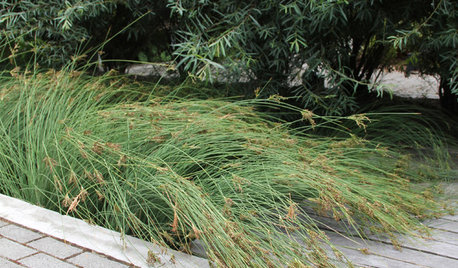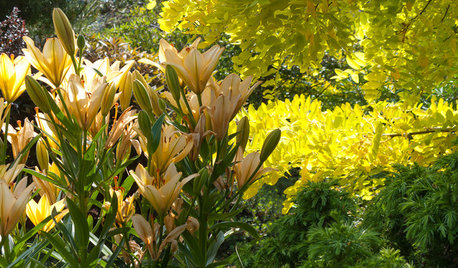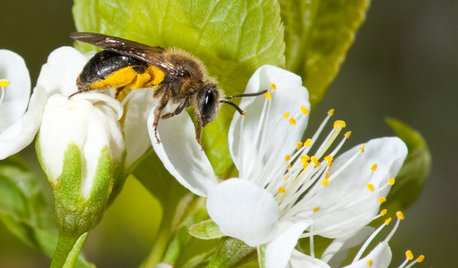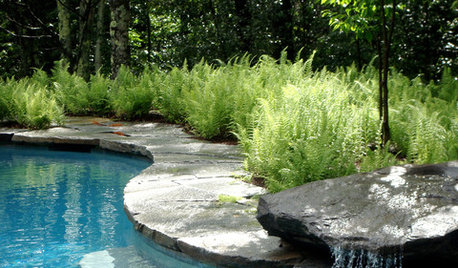Protecting plants
VoiceofParadise
10 years ago
Related Stories

GARDENING GUIDESProtect a Precious Resource With a Rain Garden
Promote pure water and a beautiful landscape with a garden design that makes the most of the rain
Full Story
FENCES AND GATESA Deer Fence Can Be Decorative as Well as Protective
You need a monster-size fence to shelter your garden from deer, but it doesn’t have to look like a monstrosity
Full Story
TREESHow to Protect Your Trees When You’re Remodeling or Building
Will your home be undergoing construction this year? Be sure to safeguard your landscape’s valuable trees
Full Story
GARDENING AND LANDSCAPINGCreate Nests: Treat Yourself to a Protected Walkway
Turn a garden path into an exploration of inviting nooks and beautiful views
Full Story
REMODELING GUIDES5 Ways to Protect Yourself When Buying a Fixer-Upper
Hidden hazards can derail your dream of scoring a great deal. Before you plunk down any cash, sit down with this
Full Story
ENTRYWAYSGlass Doors That Welcome — and Protect Your Privacy Too
These front-door designs let in the light but keep your air-guitar performances safely in-house
Full Story
GARDENING GUIDESGreat Garden Combo: 3 Wonderful Plants for a Deer-Resistant Screen
Protect your privacy and keep deer at bay with a planting trio that turns a problem garden area into a highlight
Full Story
EDIBLE GARDENSGarden BFFs? Why Your Vegetables Are Begging for Companion Plants
Foster friendships among plants for protection from pests, pollination support and color camaraderie
Full Story
GARDENING GUIDESInvite Mining Bees to Your Garden by Planting Their Favorite Plants
Look for mining bees (Andrena) pollinating woodland wildflowers in U.S. gardens this spring
Full Story
GROUND COVERSNative Alternatives to English Ivy, Japanese Pachysandra and Periwinkle
These shade-loving ground covers are good for the environment and say something about where you are
Full StorySponsored
More Discussions







OklaMoni
helenh
Related Professionals
Barrington Hills Landscape Architects & Landscape Designers · New Mexico Landscape Architects & Landscape Designers · Newcastle Landscape Architects & Landscape Designers · Cambridge Landscape Contractors · Fort Atkinson Landscape Contractors · Pahrump Landscape Contractors · Webster Groves Landscape Contractors · West Covina Landscape Contractors · Northlake Landscape Contractors · Bloomington Decks, Patios & Outdoor Enclosures · Brookfield Decks, Patios & Outdoor Enclosures · Del City Decks, Patios & Outdoor Enclosures · Parker Decks, Patios & Outdoor Enclosures · Pittsburgh Decks, Patios & Outdoor Enclosures · Saint Louis Park Decks, Patios & Outdoor EnclosuresOkiedawn OK Zone 7